Yungdrung Tenzin – Dominique Troulay by his civic name – was translating into French the teaching of Khenchen Tenpa Yungdrung Rinpoche in this year’s summer retreat. What does the process of translation look like from his perspective? “It is a kind of shock,” he says. “The teacher starts talking and you have no choice but to listen very carefully, with absolute focus. It is a big responsibility to translate teachings, but I am happy to take this responsibility. ”
When you translate a teaching, do you know the text that the teacher is explaining?
Usually, I don´t. I am completely open to what I will hear, and I reproduce it in French. Sometimes the teacher may digress and talk about something that is not in the text, maybe comparing it with some other text – I need to be ready for anything. I just focus on what the teacher says and convey it in French accurately.
I see you writing a lot…
The notes are extremely important for me, I write down the maximum that I can of what the teacher says, almost every word. I want to be as faithful as I can. I feel this is a big responsibility, because what is explained is of great importance. Actually, I do not like having to write so fast, but this is the only way I can do it. My memory is weak, and I cannot keep in my mind a speech lasting sometimes several minutes. So I need to write these notes. I have written more than two hundred pages during the three weeks of the summer retreat. In the evening I go through my notes again. It is an inspiring activity for me. But if it was possible not to take them, I would be happier. For example, if some technology could transcribe what the teacher says directly onto a screen and I could only listen – that would be much more comfortable for me.
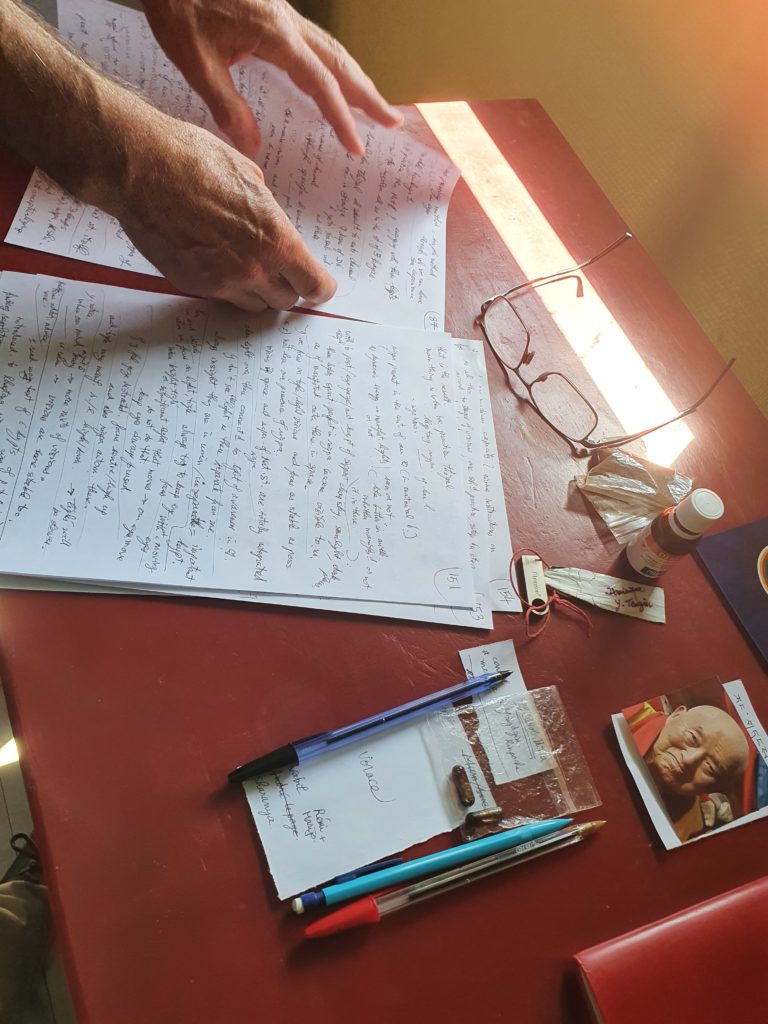
How do you feel when you translate? Does that kind of concentration have any benefit for you?
It is a kind of shock. The teacher starts talking and you have no choice but to listen very carefully, with absolute focus. Sometimes I have one or two seconds to listen to a bird outside, but in general I have to be a hundred percent focused on what was said and what I have to say in translation. Even a small distraction is risky. I think it is a good practice, for sure.
It is a delight to listen to your translation, I mean it. Do other people come to you saying that they appreciate your translation?
Some people do. They tell me it helps them, even if they understand English. When they listen to my translation it helps them understand something that they did not understand or to be sure they understood well. And if some people have some doubts about what I said, I have my notes and we can check.
Does Khenpo Rinpoche understand your translation? His passive knowledge of French seems good.
I do not know exactly but I noticed sometimes, when somebody was translating and I was just listening, that he corrected the translation at a point, which means he understood the French words that were chosen.
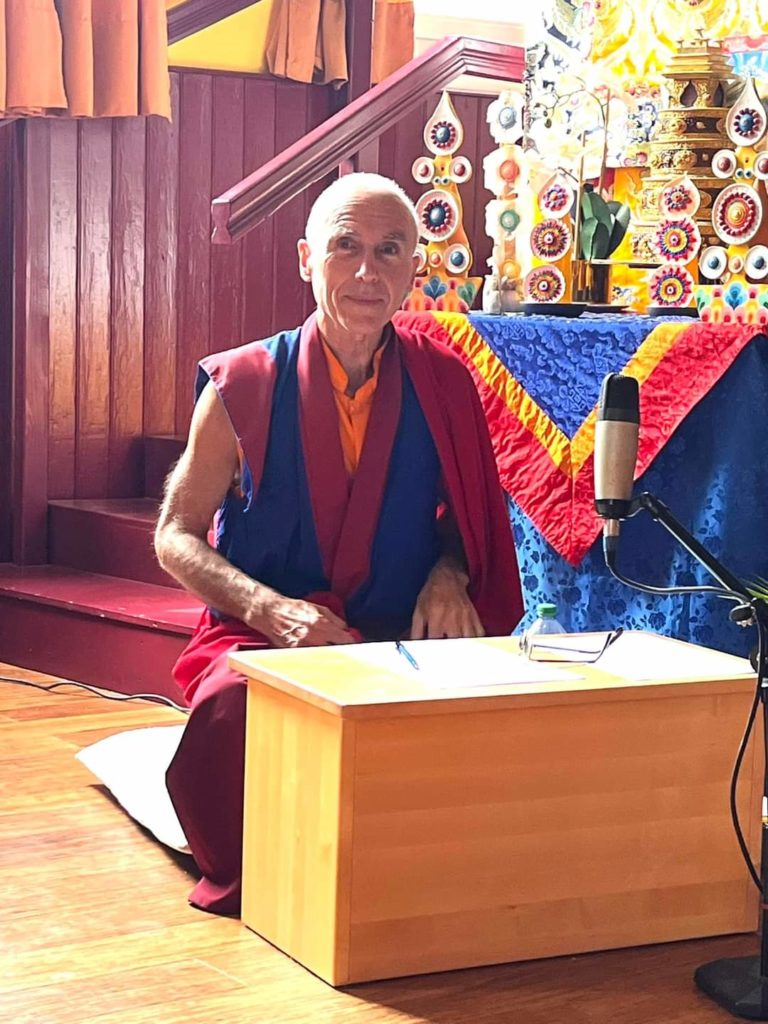
Khenpo Rinpoche usually waits until you finish translating, but in some cases it happens that he starts talking before you completed your translation. Is it stressful when you have to stop him?
Yes, a little bit, but I have to do it. Sometimes I also have to ask him to repeat a word about which I am not sure or I forgot it. I would rather not but it is necessary. I have to be sure that I translate accurately. It is a responsibility, but I am happy to take this responsibility. I have big respect for Khenchen Rinpoche and devotion to him and I am very happy that I can translate for him and for the sangha.
You translated Khenpo Rinpoche´s occasional public talks in the past, but not regular retreats. You started to be more involved as a translator when Shenten began with online teachings, is that right?
Yes, I was not very confident about being able to do it, before and I am really surprised that I can. The online teachings during all those lockdowns were good practice for me. I did many, many hours of translations for Khenpo Gelek and his daily sessions, and then also for other teachers. Gradually, I gained more confidence. Online translation is simultaneous, and I like it, especially because I do not have to take any notes (he laughs).
The second part of the interview will bring a personal story of Yungdrung Tenzin, a Yungdrung Bon monk from a Western background.
Photos: Jitka Polanská
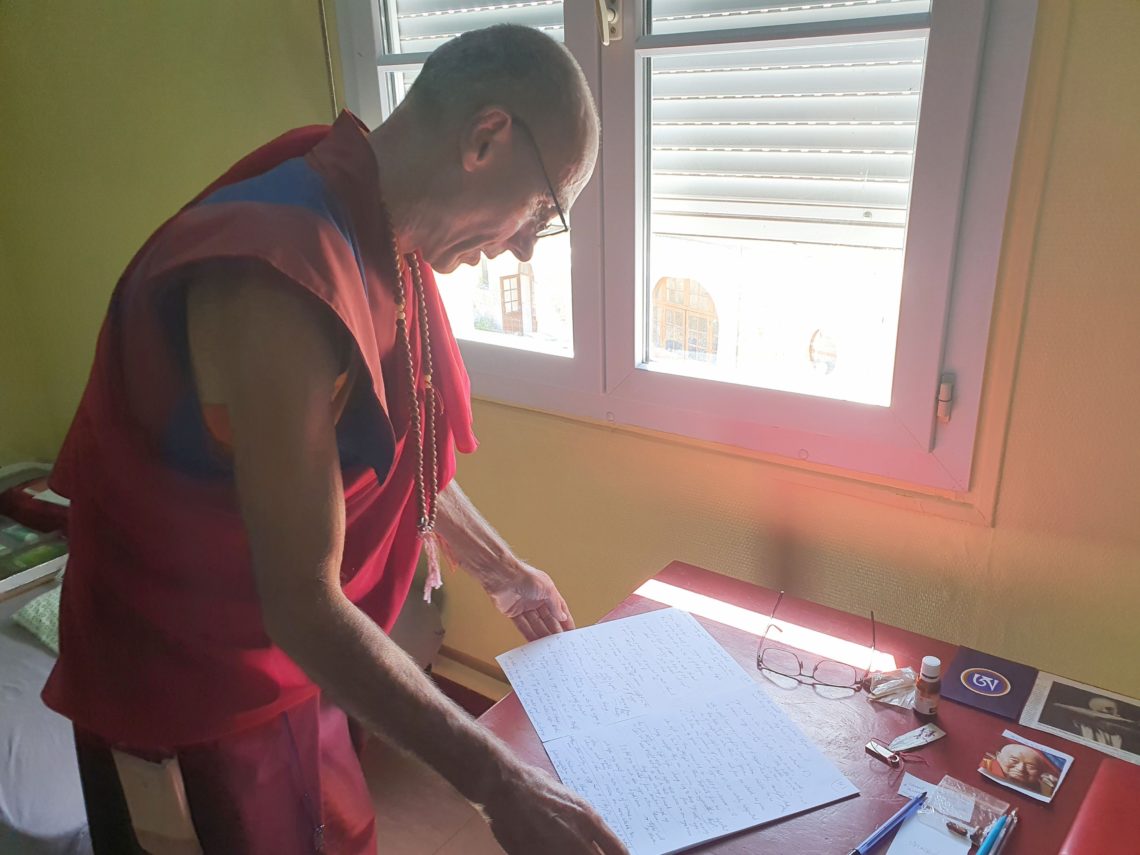


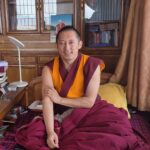




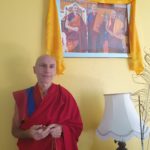




Jitka Polanská
September 26, 2022 — 9:55 am
A comment under the article on FB: Tsewang Norbu Lama
So nice to see Dominique around Menri serving HH and monks since our childhood and now serving in Shenten 💕 As a child , we used to make fun of him, sometimes even with serious words but he always took it kindly and kept smiling. 🙏 Now looking back, I can see it was not easy for him to adjust himself in a community having completely different culture. But he not only did it with ease, he stayed there for years – such a patient, dedicated, friendly and funny person 🙂 Keep up good work my friend. Tashi deleg from Nepal!